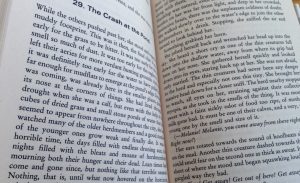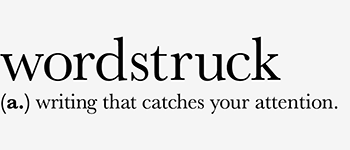 Do you ever think I don’t know what to write? I’ve said all that already? There’s nothing new to add?
Do you ever think I don’t know what to write? I’ve said all that already? There’s nothing new to add?
I hear that a lot from businesses I work with. Most of the time you’re thinking about what you’re doing, your customers, your products, making sales and generally getting on with business. Thinking about how you write or talk about what you do to market your business doesn’t cross your mind until you find yourself stuck for inspiration.
If you’re looking for something to say in a blog post, facebook update, newsletter, instagram post or any other place you market your business, try one of these creative prompts to get you started.
Ever think I don't know what to write? Try one of these creative prompts Click To Tweet1. Write in the style of… a detective novel, a fairy tale, a science fiction adventure…
How would you sell your products and services on a space ship? What would happen if the local outlaw came into your store?
If you feel like you’re always saying the same thing the same way, deliberately adopting a new and alternative style can shake up your thinking and give you some new ideas.
 2. Pick a sentence at random
2. Pick a sentence at random
This works well with a fiction book, but a newspaper, magazine or other printed item can work too. Choose a sentence at random, write it down and continue on from there.
An alternative starting point can give your writing a whole new direction.
3. Choose an object and tell its story
Select an item on your table, in your pocket, or just something you can see. Now write about life from its point of view. How did it get there? What’s its purpose? What are its goals and dreams?
This is a great creative prompt if you’re looking to freshen up the way you talk about products or services that you sell.
A great creative prompt if you're looking to freshen up the way you talk about products or services that you sell. Click To Tweet4. Write ten sentences
Write ten things about your day. They can be simple and mundane, or detailed and elaborate. They don’t have to link up or follow on from each other, so you can write something about having breakfast and then something a customer said to you. The only rule is to write complete sentences.
If the thought of writing anything feels daunting, this is a great way to grasp the confidence to do it. It’s just ten sentences after all.

5. Write about a journey
It could be something as simple as a walk to the bus stop, or a trip into town. It doesn’t have to be that tale of the time you walked the Macchu Picchu trail.
Think about a journey and how you would tell the story of that journey to someone else.
This is a great way to get you thinking about structure and order as you write, because all journeys have a beginning, middle and end.
Think about a journey and how you would tell the story of that journey to someone else. Click To TweetHow will any of this help me write about my business?
Writing creatively is about having fun, loosening up and forgetting about what you think you can or should be writing.
These creative prompts won’t necessarily give you something to use in your business straight away, but they will shake up your thinking and give you a fresh new place to start.
Look for the unexpected words and phrases that come from writing with a different set of expectations. Are there any that you can use?
As a copywriter, I often have to write about stuff that can seem pretty boring at first glance. I have used all of these tips and more to help me come up with fresh ideas and new perspectives.
Creative prompts will shake up your thinking and give you a fresh place to start. Click To TweetWant support and encouragement to write more creatively?
Try out some of these creative writing tips for yourself and join me for a day’s creative writing retreat at Christmas Farm in Northumberland on Saturday 23 September.
Fuel your creative inspiration with lunch fresh from the farm garden, plus plenty of tea, coffee and cake.
Book your spot at the writing table today
For more hints and tips on great writing for your business, sign up to my mailing list




